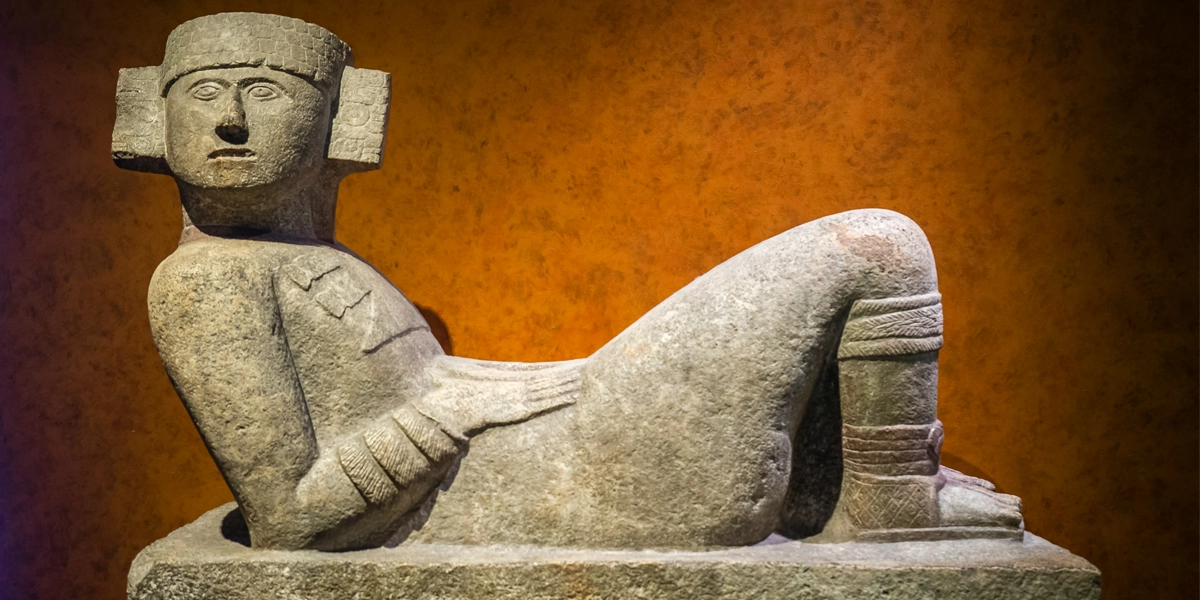Academic Programs
Bachelor's
Anthropology (BA)
Bachelor of Arts in Anthropology
Program Modality: Campus
The Bachelor's degree in Anthropology seeks to understand all dimensions of the human experience and our place in nature: who we are, where we come from, and how we understand the diversities and similarities among us. It introduces students to the major areas of biological anthropology, archaeology, sociocultural anthropology, linguistic anthropology, and applied anthropology along with advanced courses in several of those areas. Students choose from two program concentrations.
Concentrations:
Master's
Anthropology - Interdisciplinary Studies (MAIS)
Master of Arts in Interdisciplinary Studies - Anthropology
Program Modality: Campus
The Master’s degree in Interdisciplinary Studies with a Concentration in Anthropology program is designed to serve those students seeking to improve their knowledge of the discipline, to introduce graduate work in anthropology for students studying for terminal degrees elsewhere, and to provide a means for students desiring to study anthropology as an avocation. Courses in the program examine a wide range of topics including human biology, health, religion, archaeology, food, gender, sexuality, race and ethnicity, politics, environment, family, border issues, immigration, folk healing, cultural heritage, forensics, and Mexican American culture.
About Us
The mission of the UTRGV Department of Anthropology is to promote a broad understanding of the complexity and diversity of the human experience, past and present. The faculty are committed to excellence in our teaching, research, and service to the University and the wider community. Our primary goal is to help students develop the intellectual curiosity, practical skills, and vision needed for living and working in a culturally diverse, interconnected world. We do this by fueling interest in people and their lives, and by translating this interest into real outcomes.
The Department of Anthropology provides quality undergraduate academic programs in anthropology. Emphasis is placed on exposing students to a holistic approach to anthropology that incorporates the three major subfields -- cultural anthropology, physical/biological anthropology and archaeology. At the graduate level, the department provides opportunities for student with baccalaureate degrees to fulfill an anthropology concentration for an interdisciplinary master’s degree and to fulfill required graduate hours outside one’s field of study to earn a master’s degree in various disciplines at the University. The Department of Anthropology is committed to providing an environment of academic freedom and academic responsibility so that faculty may develop and implement successful teaching activities that ensure high standards of instruction and student performance.
The department recognizes that its faculty has a commitment to those research and creative activities indicative of scholarly excellence. The department attempts to nurture and support such activities so that faculty may maintain currency in their knowledge of subject matter, vibrancy in their teaching, dedication to their respective disciplines, and interest in extending the boundaries of human knowledge and understanding.
The Department of Anthropology is also committed to providing effective instructional opportunities for all students at the university, regardless of their major area of concentration. The department attempts to meet this goal by providing students with instruction in several areas of study that ground the liberal arts tradition. To this end, the department provides instructional opportunities for all students to develop further the following characteristics indicative of a university-educated person:
- Learning about anthropology fosters an inquiring attitude that acknowledges the many-sided nature of most important questions, recognizes the need to examine inherited judgments and reveals a desire for continued learning and creative expression.
- A holistic approach to anthropology hones a person’s ability to use words accurately and effectively and to communicate clearly in oral and written formats.
- Anthropological thinking nurtures the ability to analyze complex problems and to synthesize facts and ideas.
- Exposure to the field of anthropology encourages an appreciation for the responsibilities of the individual to family and society; skill serving as a constructive member in groups and organizations; and sensitivity to the need for informed, independent, moral and ethical decisions.
- Learning about anthropology increases knowledge about political and social systems in the United States and other nations, and their interrelationships; such multicultural perspectives can foster greater understanding, tolerance and respect for different lifestyles and viewpoints.
- Anthropology encourages an understanding of self, along with an empathy for the strengths, weaknesses, rights and needs of others, as well as the ability to relate to others with human understanding.
The Department of Anthropology is also committed to sponsoring service activities that meet the intellectual and cultural interest of the University and the community that the University serves.
Anthropology is the study of humans, past and present. To understand the full sweep and complexity of cultures across all of human history, anthropology draws and builds upon knowledge from the social and biological sciences as well as the humanities and physical sciences. A central concern of anthropologists is the application of knowledge to the solution of human problems. Historically, anthropologists in the United States have been trained in one of four areas: sociocultural anthropology, biological/physical anthropology, archaeology, and linguistics. Anthropologists often integrate the perspectives of several of these areas into their research, teaching, and professional lives.
Addressing complex questions, such as human origins, the past and contemporary spread and treatment of infectious disease, or globalization, requires synthesizing information from all four subfields. Anthropologists are highly specialized in our research interests, yet we remain generalists in our observations of the human condition and we advocate for a public anthropology that is committed to bringing knowledge to broad audiences. Anthropologists collaborate closely with people whose cultural patterns and processes we seek to understand or whose living conditions require amelioration. Collaboration helps bridge social distances and gives greater voice to the people whose cultures and behaviors anthropologists study, enabling them to represent themselves in their own words. An engaged anthropology is committed to supporting social change efforts that arise from the interaction between community goals and anthropological research. Because the study of people, past and present, requires respect for the diversity of individuals, cultures, societies, and knowledge systems, anthropologists are expected to adhere to a strong code of professional ethics.



